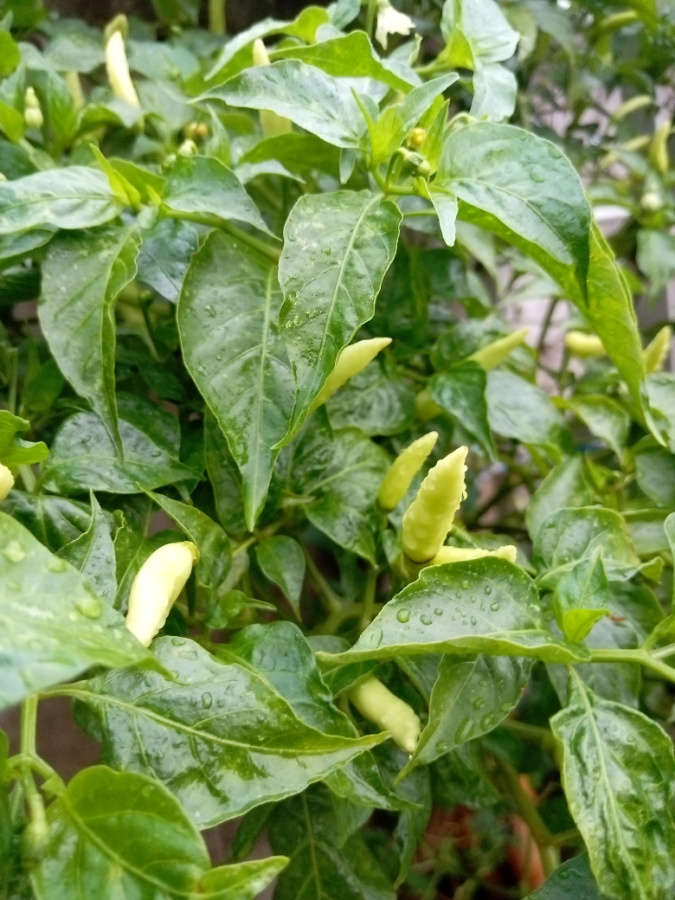Premier Fertilizers for Peppers: Improve Your Harvest High Quality
Premier Fertilizers for Peppers: Improve Your Harvest High Quality
Blog Article
Organic Vs. Synthetic Fertilizers: Which Is Best for Nurturing Healthy Pepper Plants?
In the realm of nurturing healthy and balanced pepper plants, the selection in between natural and artificial fertilizers stands as an essential decision with far-ranging implications. While both choices objective to give crucial nutrients to sustain plant growth, the subtleties of their effect on the dirt, plant wellness, and the atmosphere trigger a dispute that mirrors throughout the horticulture area. Comprehending the distinctive benefits and possible pitfalls of each fertilizer type is critical for pepper growers looking for to maximize their returns while maintaining a sustainable and eco-conscious technique.
Benefits of Organic Plant Foods
Organic plant foods provide an environmentally-friendly and sustainable strategy to nourishing pepper plants, supplying important nutrients without using synthetic chemicals. These natural fertilizers are originated from natural sources such as garden compost, manure, bone meal, and algae, advertising soil health and wellness and biodiversity. Unlike artificial fertilizers, natural options launch nutrients slowly, making sure a well balanced and constant supply for pepper plants to flourish.
One substantial benefit of natural fertilizers is their capability to boost soil framework and water retention. By boosting dirt wellness, organic fertilizers advertise beneficial microbial activity, which assists in nutrient uptake by pepper plants. Additionally, organic fertilizers minimize the threat of chemical run-off, safeguarding water resources from pollution and safeguarding the setting.
Additionally, organic plant foods add to long-term dirt fertility by advertising the development of advantageous soil microorganisms. These organisms help damage down raw material, launching nutrients in a form that is conveniently available to pepper plants. best fertilizers for peppers. By fostering a healthy and balanced soil ecological community, organic fertilizers support lasting pepper growing practices that profit both plants and the atmosphere
Drawbacks of Synthetic Fertilizers
Synthetic plant foods, in comparison to their organic equivalents, present numerous disadvantages when made use of to nourish pepper plants, affecting both plant wellness and environmental sustainability. One major drawback of synthetic fertilizers is their tendency to seep nutrients from the dirt promptly.
In addition, the overuse of synthetic fertilizers can add to water air pollution. Excess fertilizers not taken in by plants can get rid of right into water bodies, resulting in eutrophication, where algae blooms deplete oxygen levels in the water, hurting water life. Synthetic fertilizers are generally acquired from non-renewable resources, such as fossil gas, contributing to carbon discharges and environmental deterioration during their production.
Nutrient Absorption Comparison
When contrasting synthetic and natural fertilizers in terms of nutrient absorption, natural plant foods have the advantage of offering a more well balanced and slow-release source of nutrients. Organic fertilizers have a selection of macro and trace elements that are not just advantageous for the plants but likewise advertise healthy dirt microbial task, which aids in nutrient uptake.
Moreover, organic fertilizers improve dirt framework and water retention capability, allowing pepper plants to access nutrients a lot more effectively. This enhanced dirt top quality helps with origin development, enabling much better nutrient absorption. Synthetic plant foods, although initially increasing plant growth due to their high nutrient focus, might impede long-lasting nutrient absorption by degrading soil wellness gradually.
Ecological Effect Considerations

On the other hand, artificial plant foods, although commonly even more instantly offered and concentrated to plants, can have damaging impacts on the atmosphere otherwise used correctly (best fertilizers for peppers). Their production needs high power inputs, causing greenhouse gas discharges and adding to environment change. Furthermore, the drainage of excess synthetic plant foods can pollute water resources, causing eutrophication and hurting read this article marine communities.
Ideal Plant Food Practices for Peppers
When fertilizing pepper plants, optimizing nutrient uptake and reducing environmental effect are vital factors to consider. To achieve this, it is important to follow ideal plant food techniques tailored to the specific needs of pepper plants. One critical method is to execute a dirt test before using any fertilizers. This test can figure out the pH degree of the soil and determine any type of nutrient deficiencies, guiding you in picking the most appropriate plant food formula.
Another vital method is to fertilize pepper plants at the appropriate time. Commonly, peppers gain from getting plant food at planting and after that once more when they begin to blossom. Over-fertilizing can lead to vitamins and mineral discrepancies and damage the plants, so it is crucial to comply with advised application rates.
Additionally, picking a balanced fertilizer with an NPK proportion that matches pepper plants' needs is basic. Eventually, integrating organic and artificial fertilizers carefully can help nurture healthy pepper plants while reducing environmental influence.
Final Thought

Organic plant foods use an environmentally-friendly and sustainable approach to beneficial pepper plants, supplying important nutrients without the click here for info use of synthetic chemicals. Unlike artificial plant foods, organic options release nutrients slowly, guaranteeing a well balanced and stable supply for pepper plants to thrive.
Synthetic plant foods, in comparison to their natural counterparts, pose numerous disadvantages when made use of to nurture pepper plants, impacting both plant health great post to read and environmental sustainability. When contrasting artificial and organic plant foods in terms of nutrient absorption, organic fertilizers have the advantage of providing a much more well balanced and slow-release resource of nutrients.Additionally, organic fertilizers improve dirt structure and water retention capacity, allowing pepper plants to access nutrients extra efficiently.
Report this page